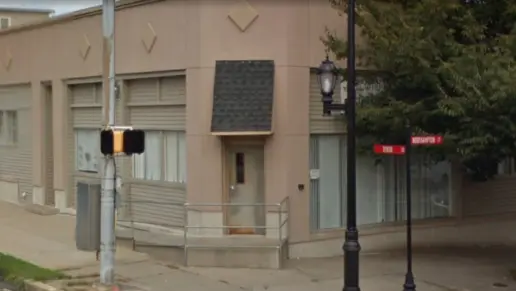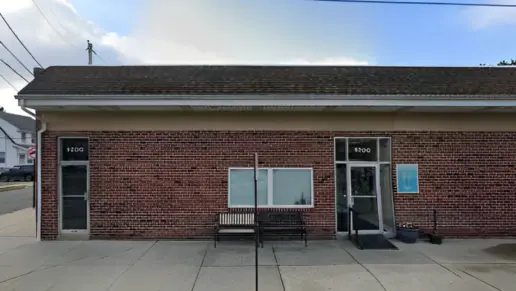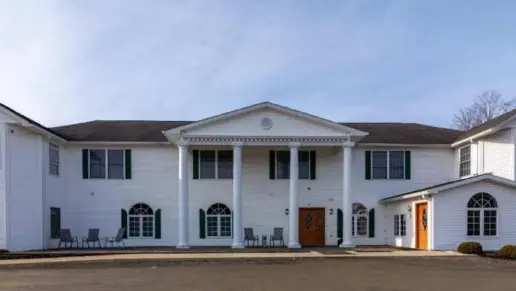About Banyan Philadelphia
Banyan Treatment Centers – Philadelphia specializes in treating drug and alcohol addiction to help patients lead meaningful substance free lives. This addiction treatment center is found in Langhorne, Pennsylvania. The staff at this drug rehab center work alongside patients to give them the confidence they require to overcome addiction and achieve recovery. Individuals can enroll in any of the many unique programs at this detox center to start receiving substance abuse treatment.
At Banyan Treatment Centers – Philadelphia, individuals can reach their sobriety goals and live healthier lives by enrolling in one of the programs offered by this facility. Each of the programs discussed below includes therapeutic techniques like cognitive behavioral therapy, rational emotive behavioral therapy, motivational interviewing, and solution focused counseling:
The partial hospitalization program (PHP) at this addiction treatment center provides individuals with full time treatment for drug and alcohol addiction. This PHP includes person centered treatment approaches and individualized treatment plans designed to meet each individual’s needs.
Clients will receive individual and group therapy with assigned therapists during this PHP. The therapy sessions occur six hours daily for five to seven days. In addition, individuals can also expect nutritional therapy, chiropractic and acupuncture services, and yoga.
Transitioning into daily life can be incredibly difficult for individuals on the path to recovery. Those who require further treatment to remain sober can enroll in this intensive outpatient program (IOP) offered at this rehab center. This IOP provides constant support and therapy weekly through individual and group counseling.
Those who participate in this program will learn coping skills to prevent relapses. In addition, this IOP offers flexible scheduling, proven medical practices, holistic addiction therapies, medication evaluation and management, and post treatment services.
The outpatient program (OP) at this addiction treatment center suits those who don’t need to enroll in a detox, residential, or PHP program or have already completed one. This is a less intensive form of drug and alcohol addiction treatment, and as such, it offers a flexible therapy schedule. The time commitment for most individual or group therapy sessions ranges from 90 minutes to several hours weekly.
Latest Reviews
Gallery
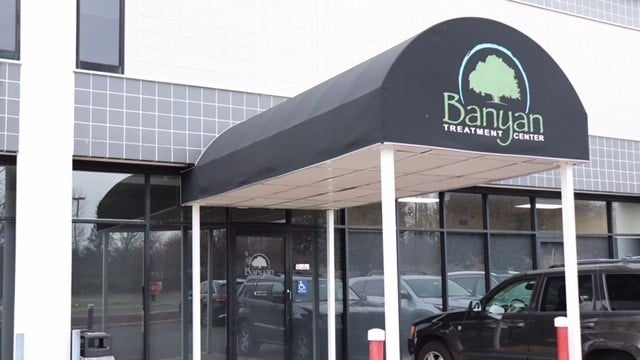
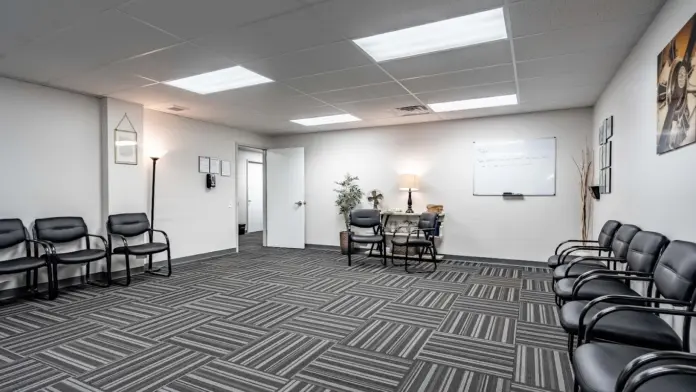
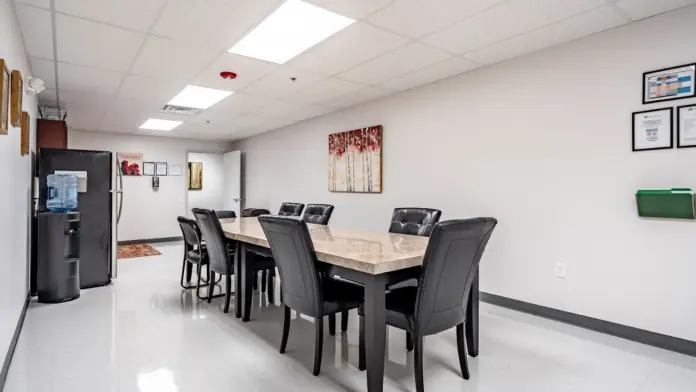
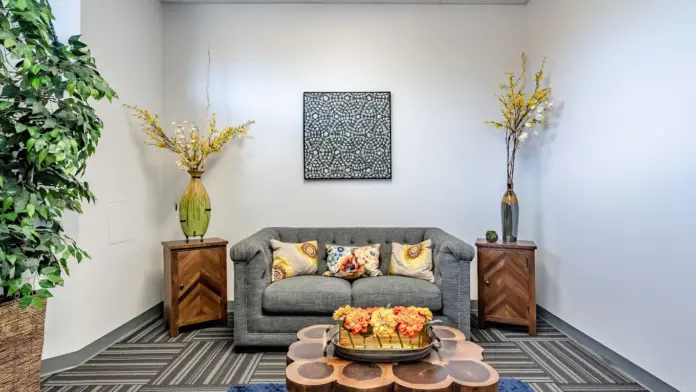
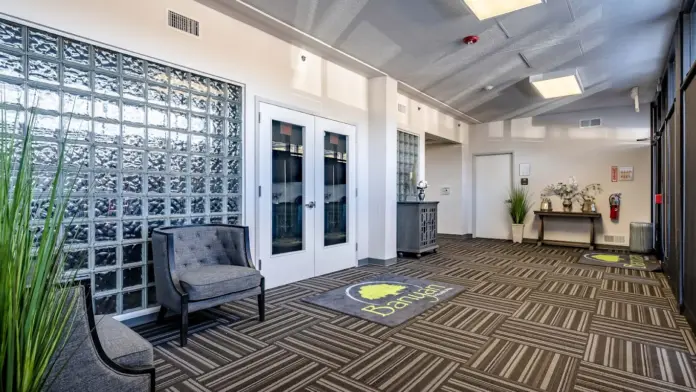
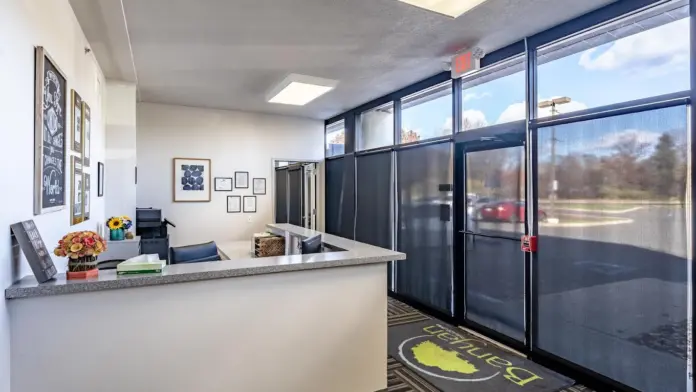
Location
Accepted Insurance




Other Forms of Payment
Private insurance refers to any kind of healthcare coverage that isn't from the state or federal government. This includes individual and family plans offered by an employer or purchased from the Insurance Marketplace. Every plan will have different requirements and out of pocket costs so be sure to get the full details before you start treatment.
Self-pay involves paying for treatment out of your own pocket. You can use savings or credit, get a personal loan, or receive help from family and friends to fund your treatment. If you don't have insurance or your insurance plan doesn't cover a specific program, self-pay can help ensure you still get the care you need.
Military members, veterans, and eligible dependents have access to specific insurance programs that help them get the care they need. TRICARE and VA insurance can help you access low cost or no cost addiction and mental health treatment. Programs that accept military insurance often have targeted treatment focused on the unique challenges military members, veterans, and their families face.
Addiction Treatments
Levels of Care
Programs

Clinical Services
Cognitive behavioral therapy (CBT) in Pennsylvania can be helpful to individuals who are experiencing substance use disorder and various mental health conditions. It helps you identify damaging thought and behavior patterns and replace them with healthy ones.
Group therapy sessions in Pennsylvania offer you a safe space when you're struggling with drug and alcohol addiction. You can openly discuss your challenges and the progress you're making in rehabilitation. Sharing this responsibility with others in your group fosters a commitment to sobriety and helps create strong bonds with your peers.
Personalized therapy sessions in Pennsylvania typically include a safe and nonjudgmental setting in which you can express your deepest emotions and feelings and explore the factors that have contributed to addiction. Therapists tailor the sessions to help you develop healthier thought patterns and behaviors, which improve your self control and build a foundation for your long term sobriety.
Motivational interviewing in Pennsylvania gives you the opportunity to share your perspective and explore your ideas and motivation for change. Your therapist will walk you through the four steps of engaging, focusing, evoking, and planning to empower you to make any desired changes in your life.
It is important to process the impact that traumatic experiences have had on your life. During trauma therapy, you and an experienced therapist confront these experiences and the emotional impact it is had. This helps to reduce your symptoms of stress and anxiety and improve your overall mental health and well being.
Couples therapy in Pennsylvania is typically short term treatment that focuses on building skills that lead to positive long term relationship changes. Sessions with the therapist may occur both jointly and individually.
Family therapy teaches individual family members in Pennsylvania the benefits of collectively combating addiction. Therapists help individual members establish healthy boundaries between themselves and their loved one who is struggling with addiction. This helps improve emotional support systems and creates a bond so families work together to sustain long term recovery.
Life skills are the mental and social skills that are necessary to navigate day to day life. Addiction diminishes or eliminates these skills, so they must be relearned and practiced during drug rehab treatment in Pennsylvania.
Incorporating recreational therapy into drug and alcohol addiction programs in Pennsylvania helps you rebuild your life and maintain sobriety by discovering new interests and developing healthy coping mechanisms. Recreational activities can include painting, team sports, and hiking to promote physical and mental health.
Amenities
-
Art Activities
-
Residential Setting
Accreditations

The Joint Commission, formerly known as JCAHO, is a nonprofit organization that accredits rehab organizations and programs. Founded in 1951, the Joint Commision's mission is to improve the quality of patient care and demonstrating the quality of patient care.
Joint Commission Accreditation: Yes

The National Association of Addiction Treatment Providers (NAATP) is a professional association that represents organizations in the field of addiction services. Founded in 1978, NAATP's mission is to advance addiction services and ensure that high-quality addiction treatment is available and accessible.
NAATP Member: Yes
Contact Information
100 N Bucks Town Dr
Suite 100E
Langhorne, PA 19047







